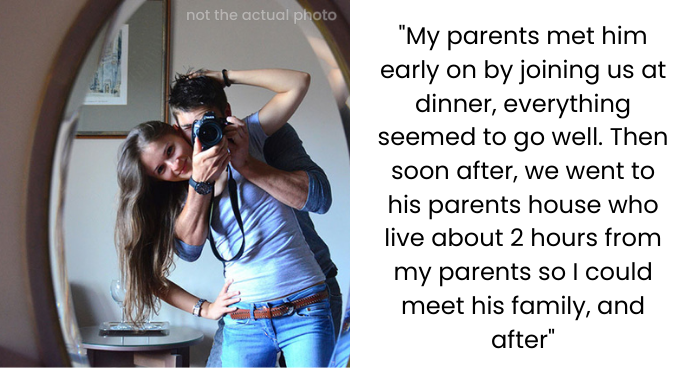Parents Give Ultimatum Over Boyfriend of Six Years: “Him or Us”
A young woman is faced with a heartbreaking dilemma after her parents issue an ultimatum and say: it’s us or your boyfriend after dating for three years Penelope, 22, claimed her parents said ‘end your relationship otherwise don’t expect to walk through this door again’ as she prepares to spend New Year’s Eve with them. Her boyfriend is a supportive person who is pursuing a law degree and consistently demonstrates he cares for and respects my daughter, but he has been rejected by her parents since day one without ever any real reason, just superficial judgments about clothing choices and the fact he went to UC Berkeley. As the years progress, they have held him responsible for events in her life that had nothing to do with him, and will not allow him to enter their family.
The parents said that they cannot be in her life if she stays with the relationship as a couple makes ready to move in together. While the woman and her boyfriend kept trying to talk it through, the parents simply would not back down from the ultimatum, leaving her to feel like all the fallout from the broken relationship is her fault.
Your parents hating on your partner without any reason definitely does not sound normal

The poster has been dating her boyfriend for 6 years, and when her parents first met him, there were no problems, but they didn’t like it when she visited his parents
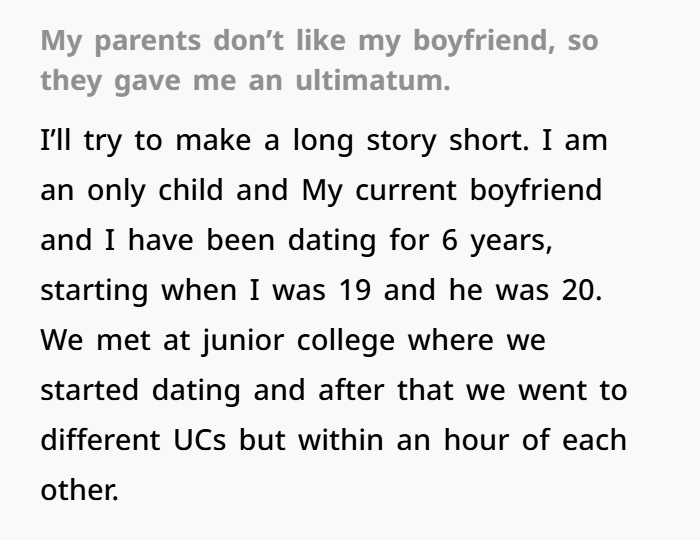
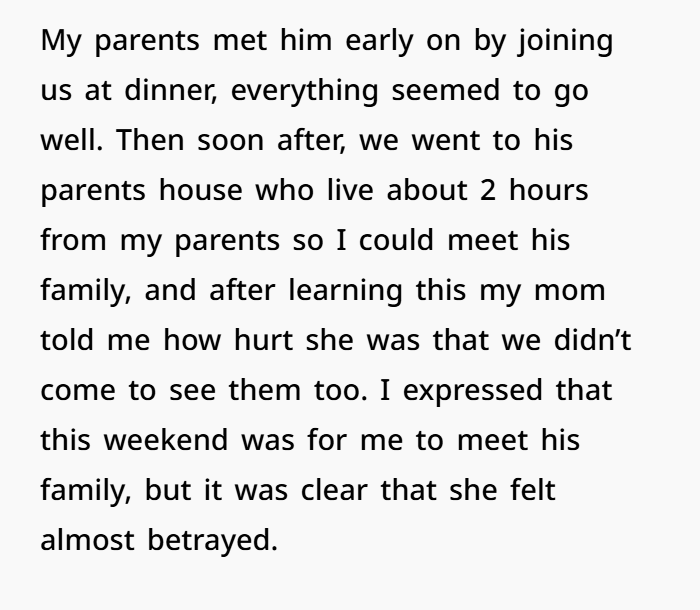
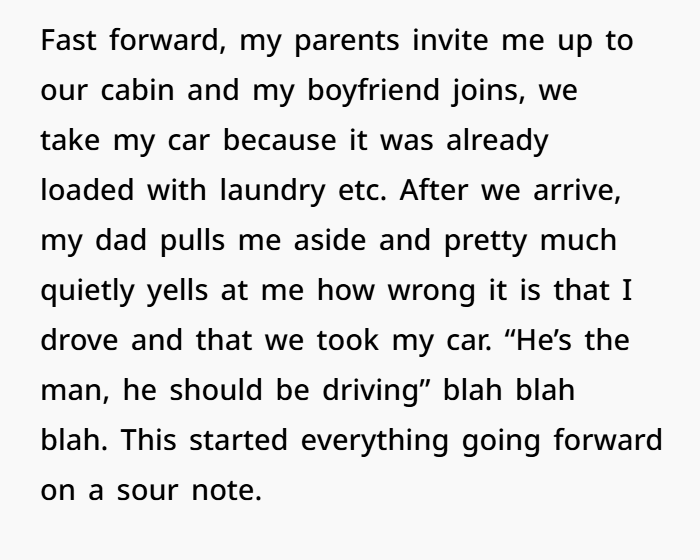
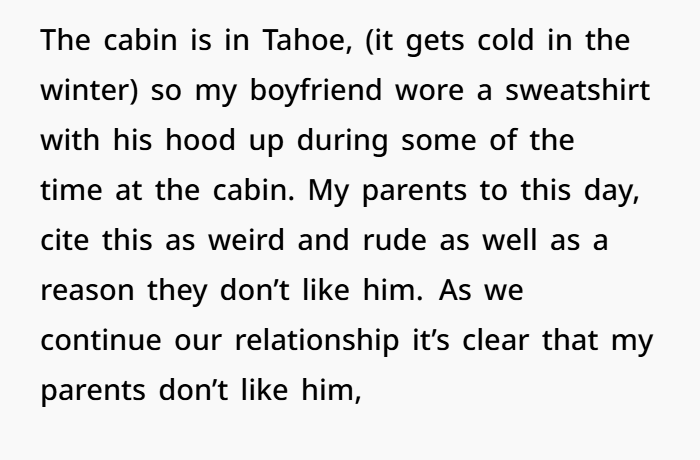
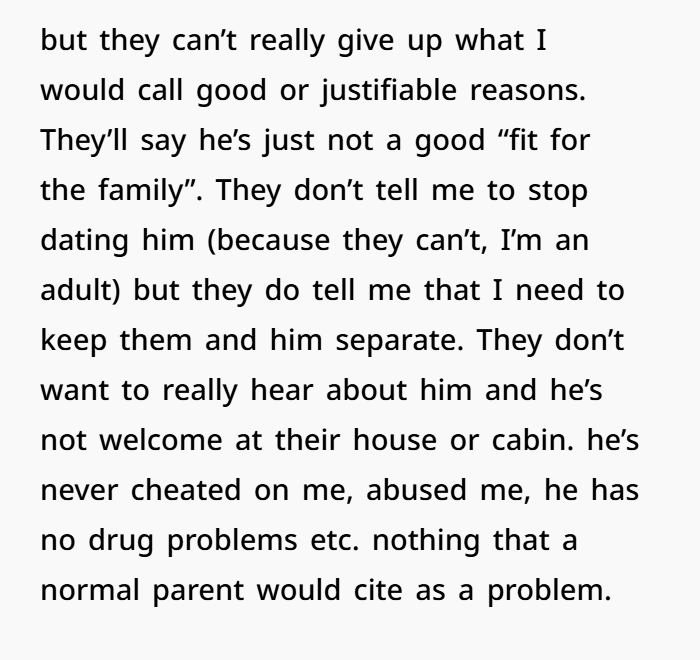
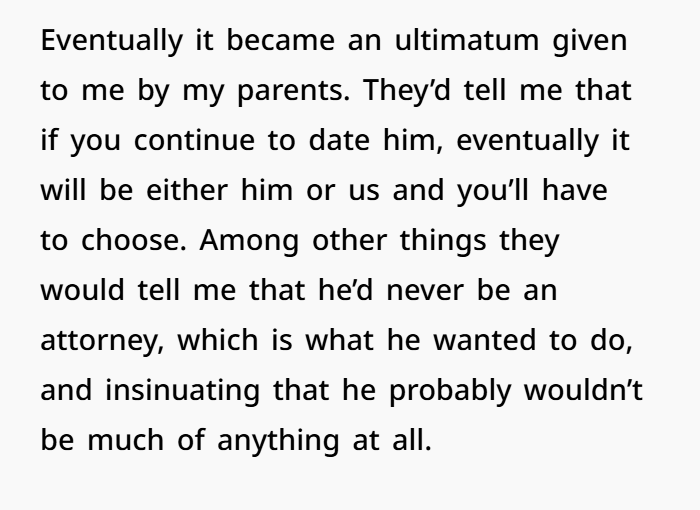
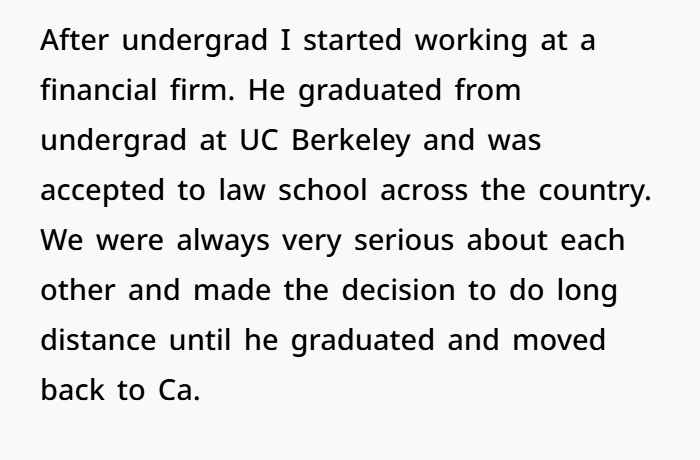
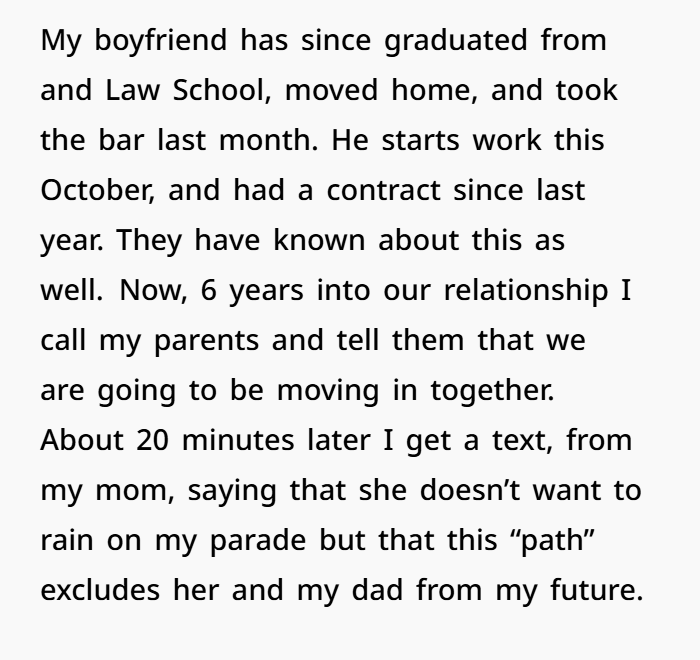
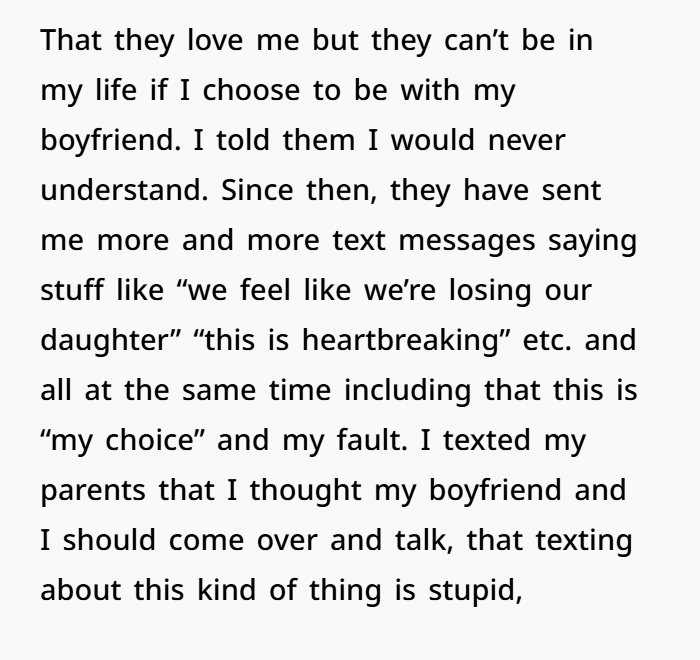
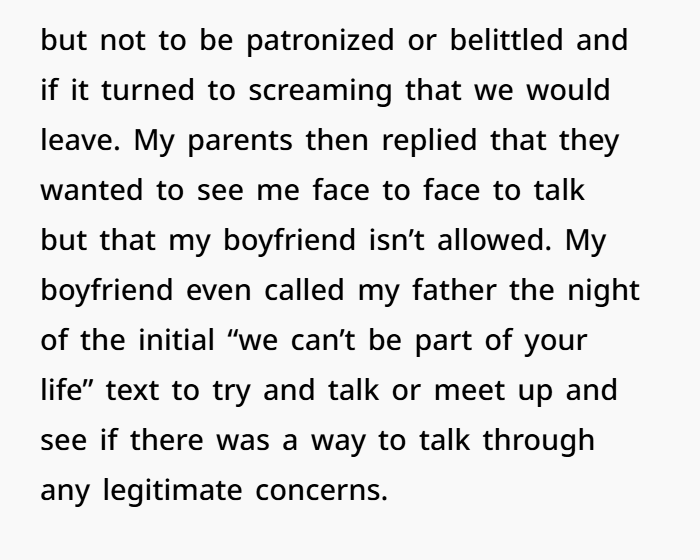

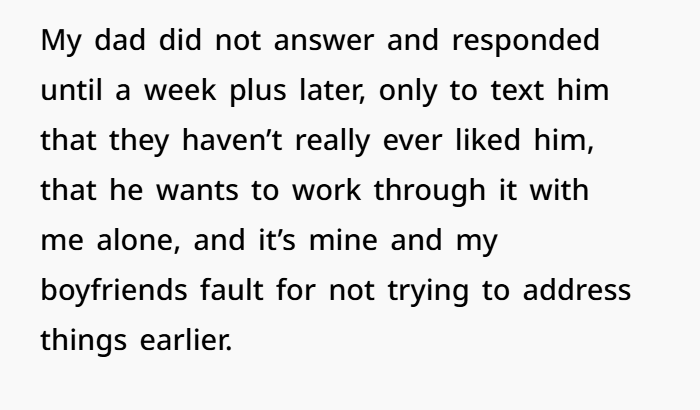
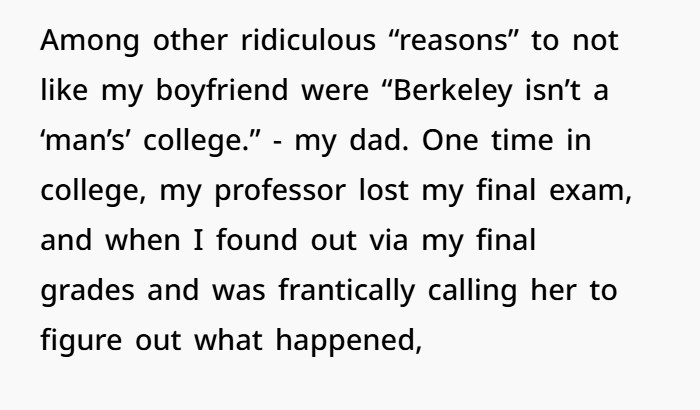
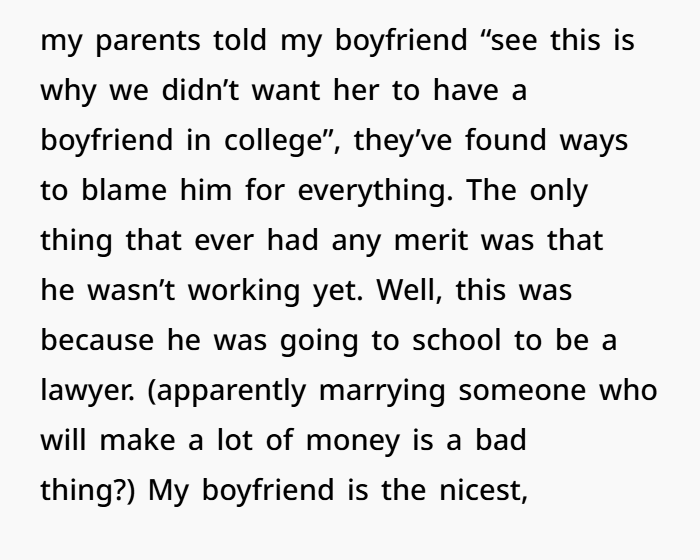
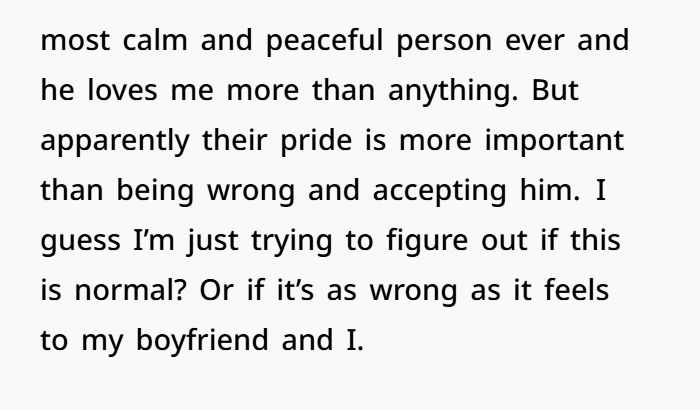
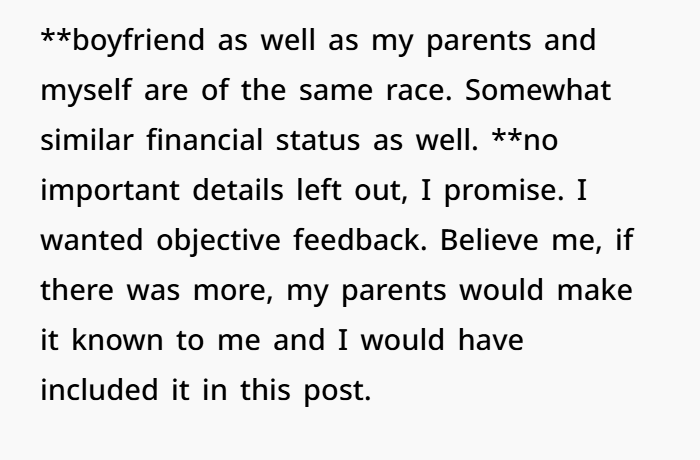
Family Ultimatums and Navigating Toxic Expectations

The Psychology of Parental Control
Ultimatums from parents are usually an attempt to exert control or impose their values on the child’s life. Family dynamics experts acknowledge that controlling behavior is primarily based on fear—fear of losing power, fear of being labeled by society, or fear that their child is making the wrong choice. But longtime observers of intergroup dispute resolution will assert that truces arrived at via ultimatums seldom end well. Instead, they breed resentment and create emotional barriers among family members.
Here, the parents’ deep-seated disdain for the boyfriend appears unjustified. It seems clear from the nature of their objections — silly complaints about hoodies, unfounded fears about his employability — that the problem is less about the boyfriend and more about something else entirely. This is a pattern of behaviour that suggests they cannot allow their daughter to make her own decisions — which point to issues of pride over her well-being and happiness/time to step aside.
When Family Disapproval Lacks Justification
As any parent knows, they never truly feel like their son or daughters partner is good enough for their child. But those concerns often spring from a very real fear of abuse, financial insecurity or a mismatch in values. It avoids all of these problems. Rather, the parents seem to lash out in an emotionally manipulative way, attacking anything and everything about the boyfriend — his school choice, why use a ridiculous bit of logic to connect events? (he caused the professor to lose her exam!).
Parental disapproval of a romantic partner is a common dating cliché, however, according to a 2018 study published in the Journal of Marriage and Family, it seems to affect the parent-child relationship more than the romantic relationship itself. When parents demand their child’s life, it is indicative of the fact that they do not respect their autonomy, forcing the child to isolate to preserve their emotions.
The Role of Emotional Blackmail

Messages the parents repeatedly sent about “losing their daughter” and making it sound like she had a choice are a textbook case of emotional blackmail, a manipulation tactic in which a person uses guilt, fear, or another type of distress to pressure the target person into agreement. They make statements like, “now you are excluding us from your life” in the hope of blaming the daughter and taking no responsibility for their own behaviour.
Those tactics are harmful and set yourself up for feeling guilty and questioning yourself. Nevertheless, realising that emotional blackmail is, in fact, emotional blackmail can help people establish boundaries. Love and respect, not manipulation, are the foundation of healthy familial and romantic partnerships.
Choosing Autonomy and Setting Boundaries
Those tactics are harmful and set yourself up for feeling guilty and questioning yourself. Nevertheless, realising that emotional blackmail is, in fact, emotional blackmail can help people establish boundaries. Love and respect, not manipulation, are the foundation of healthy familial and romantic partnerships.
Setting boundaries with her parents is essential. This could include:
- Clear Communication: Expressing her love for them while firmly stating that their ultimatum is unacceptable.
- Neutral Mediation: Involving a family therapist to facilitate dialogue, if they’re open to it.
- Enforcing Consequences: If they continue to disrespect her autonomy, limiting contact may be necessary for her emotional well-being.
The Boyfriend’s Efforts Show Maturity
On the other hand, the boyfriend is showing emotional maturity and a desire to resolve things by offering in essence that he will call her father and proposed that they meet face to face. The continued support during the relationship further contradicts the parents’ claim that the partner was not a suitable partner. Graduating from law school and signing a contract defies their expectation of him as a career loser.
When the poster vented online, folks were equally baffled by the parents and many claimed that this was not normal behavior
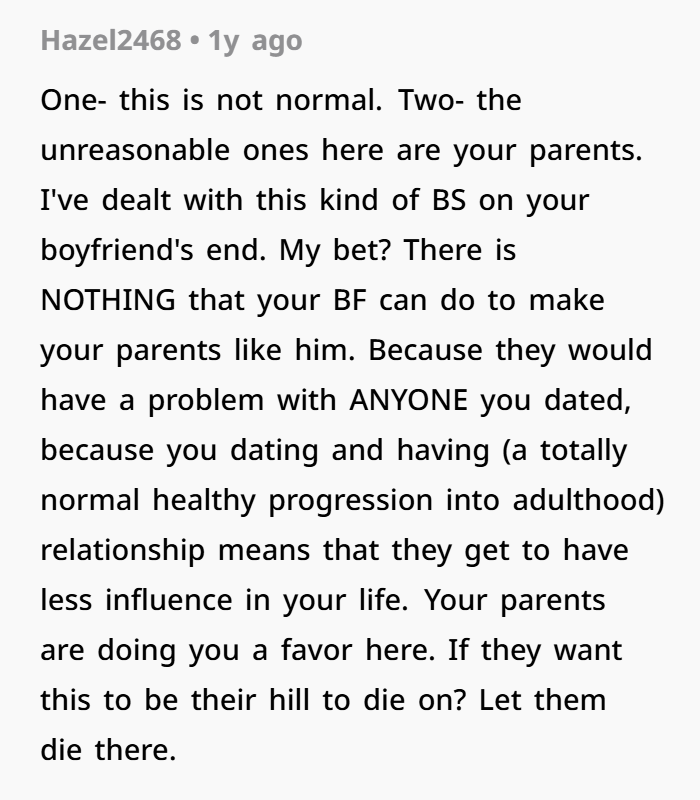
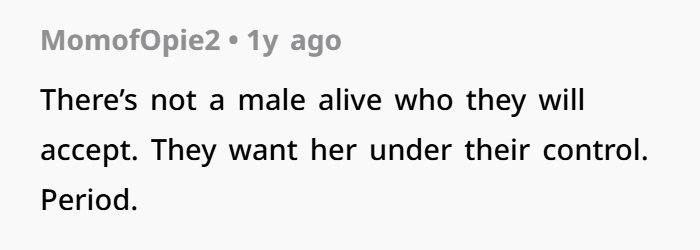
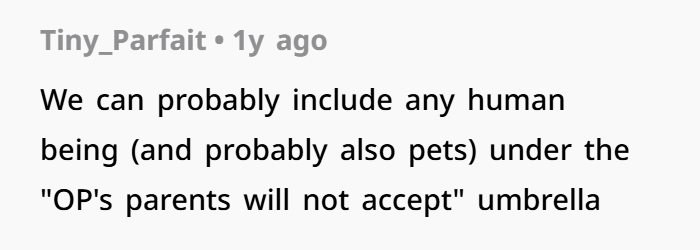
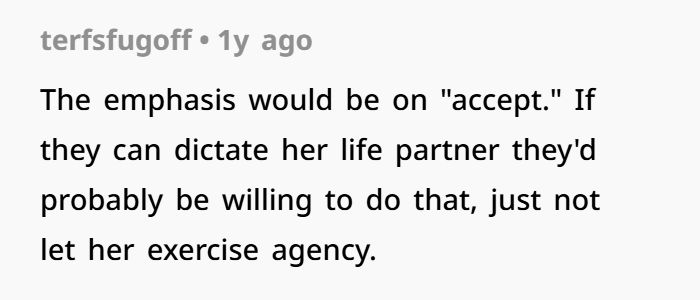


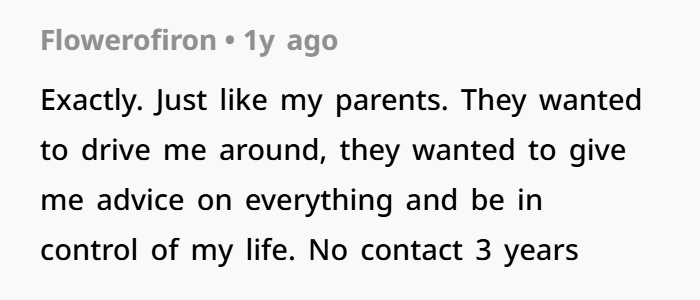

The ultimatums set forth by the parents are about control and manipulation and have nothing to do with their daughter. The lady is right to distance herself from that kind of toxicity and instead pursue happiness and companionship with her stable and successful partner. Without boundaries, however, the kindest step may be to remove oneself from the dynamics of the relationship entirely, for family relationships often flourish with respect and freedom.

